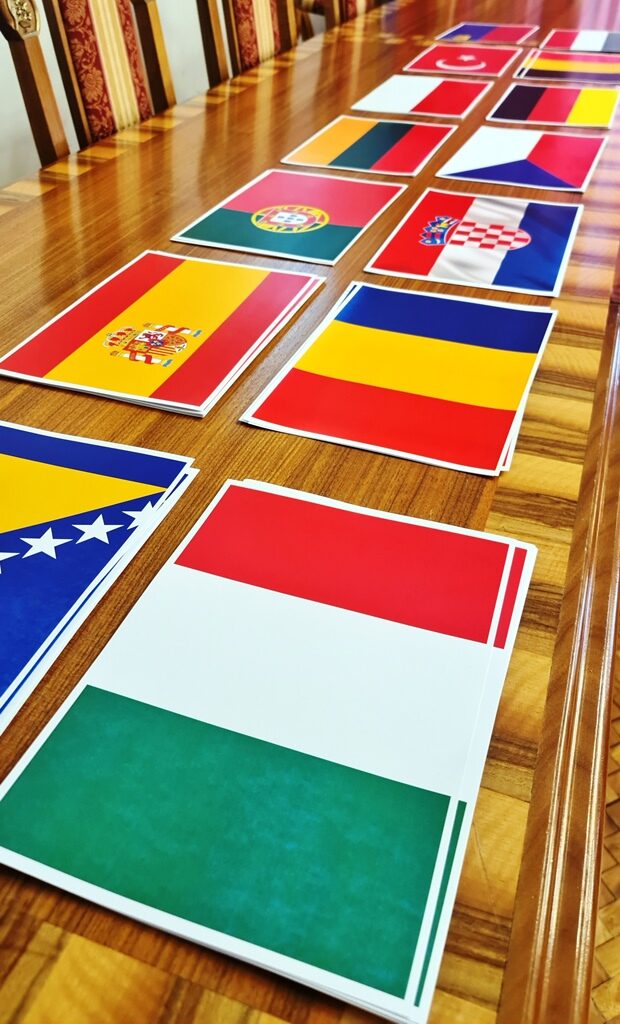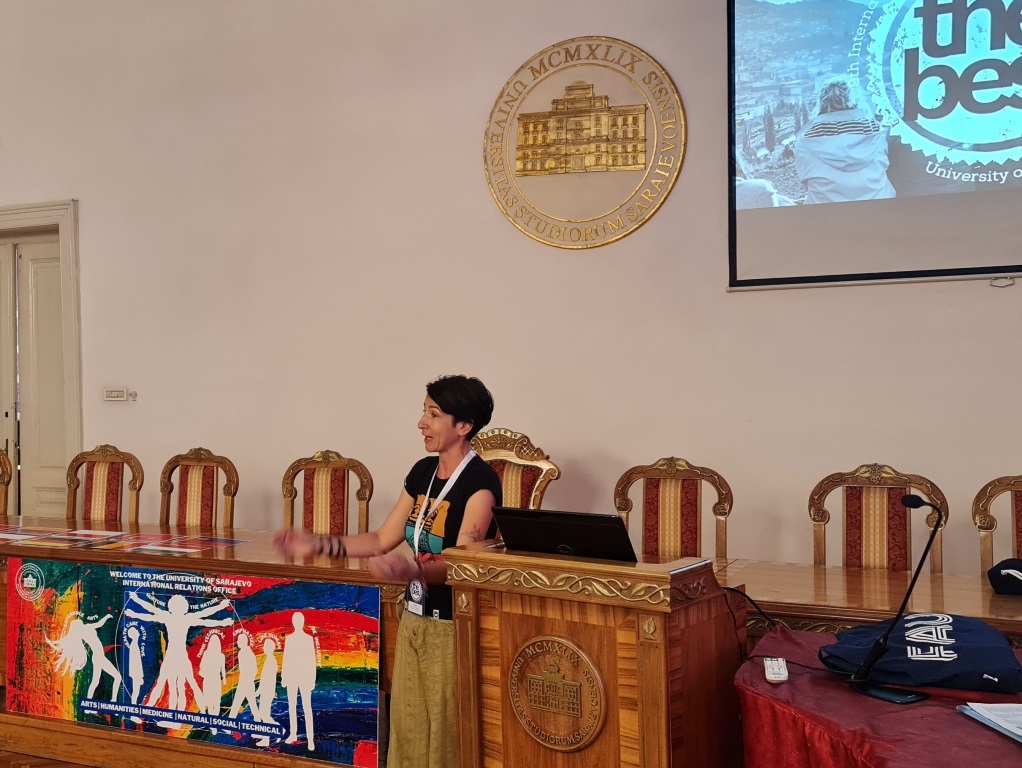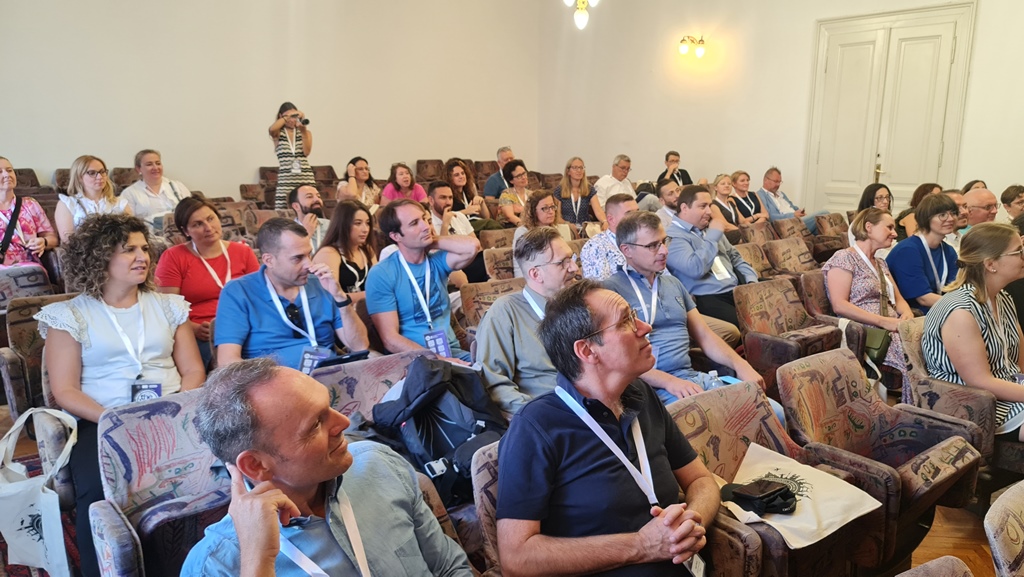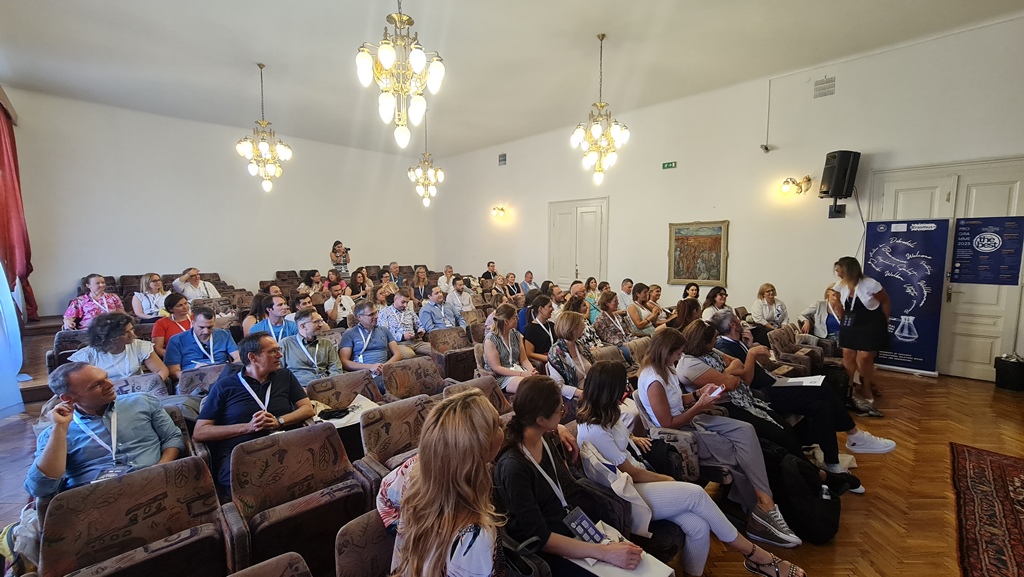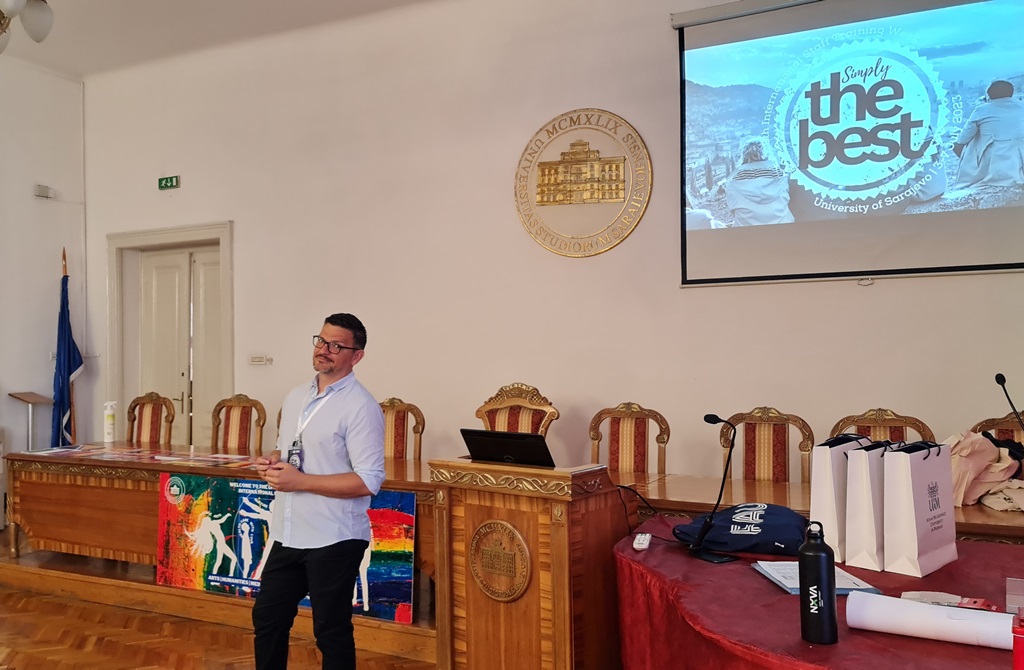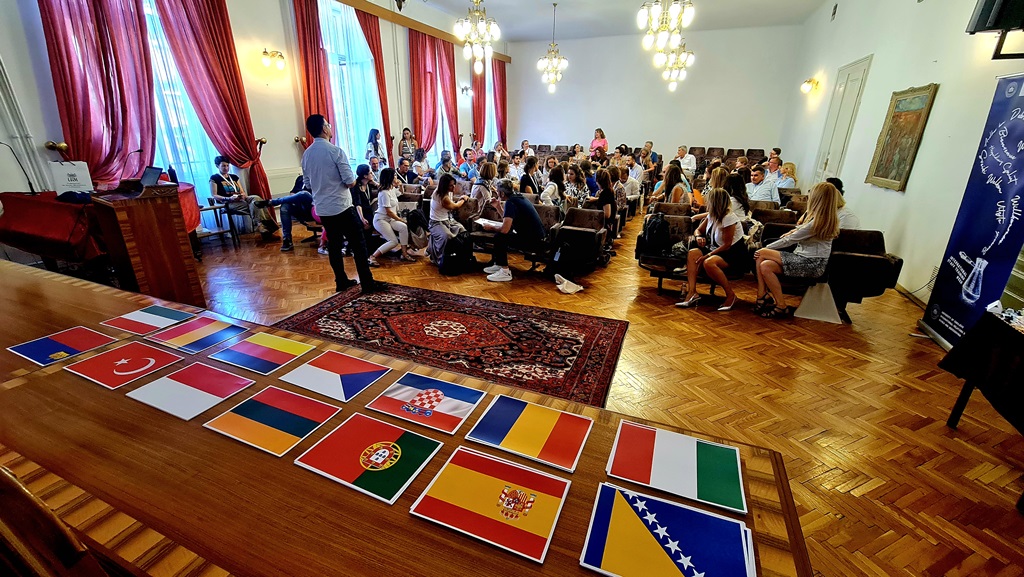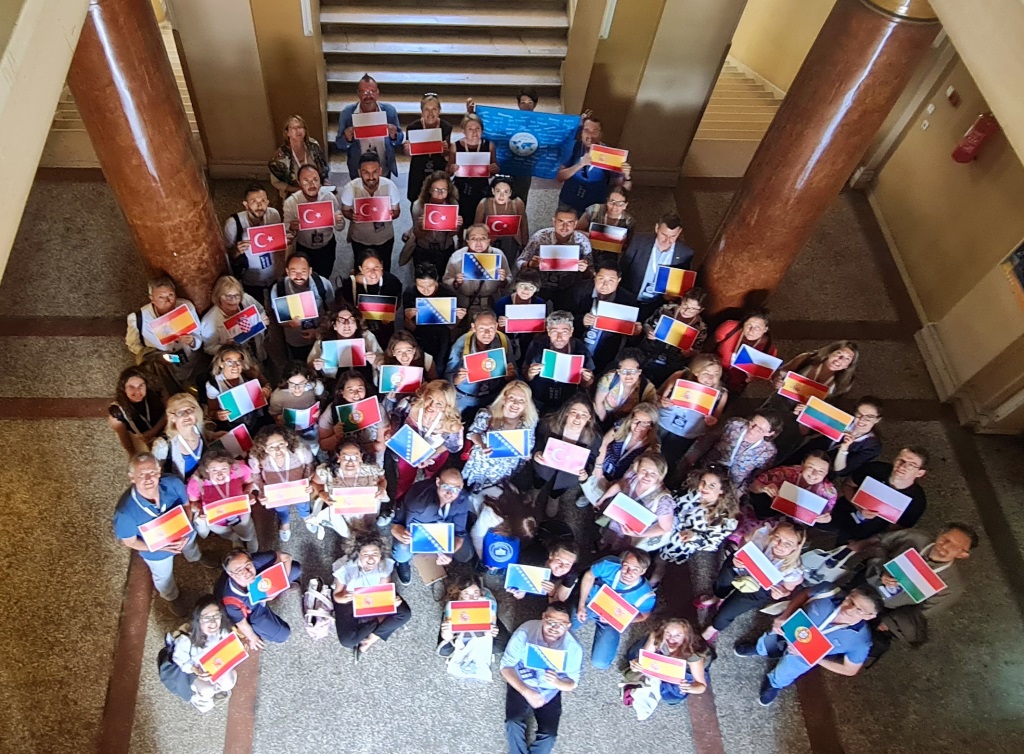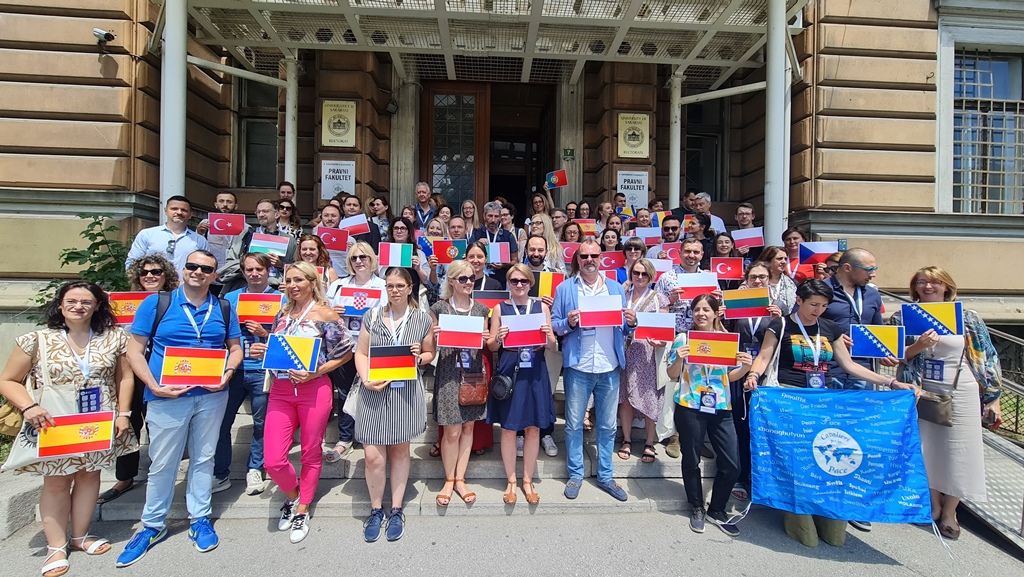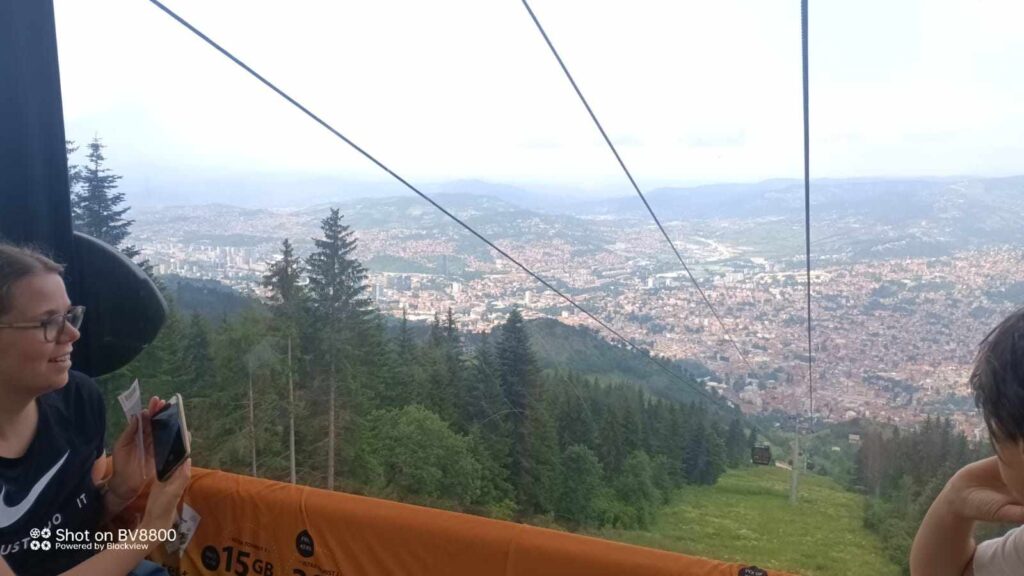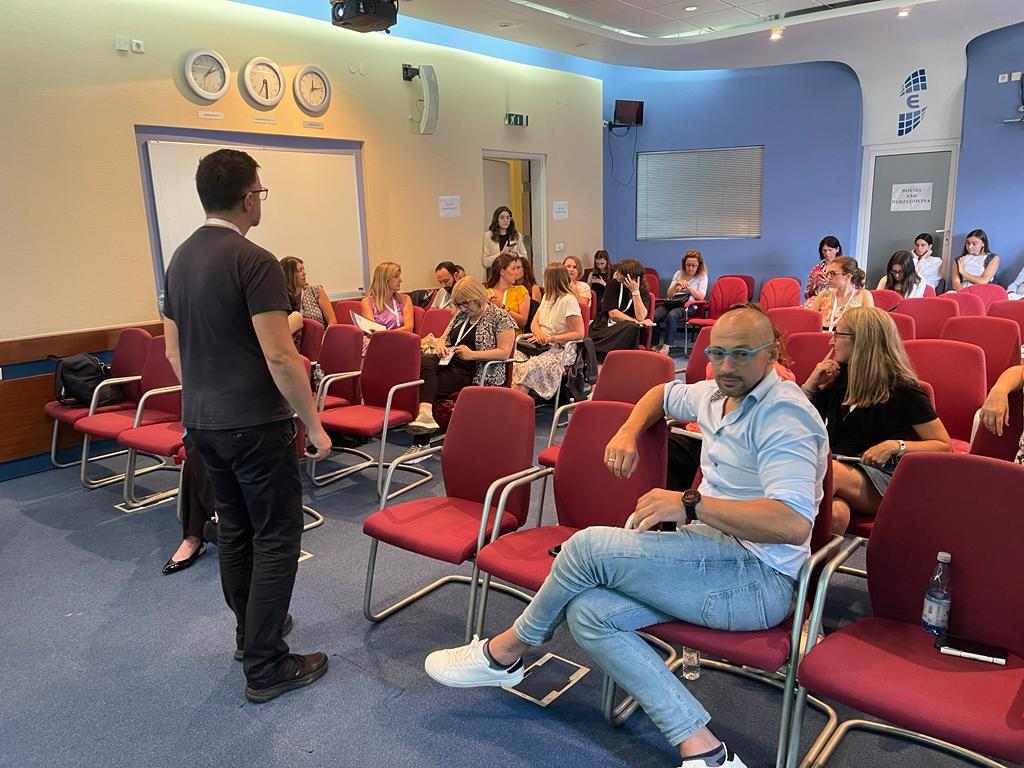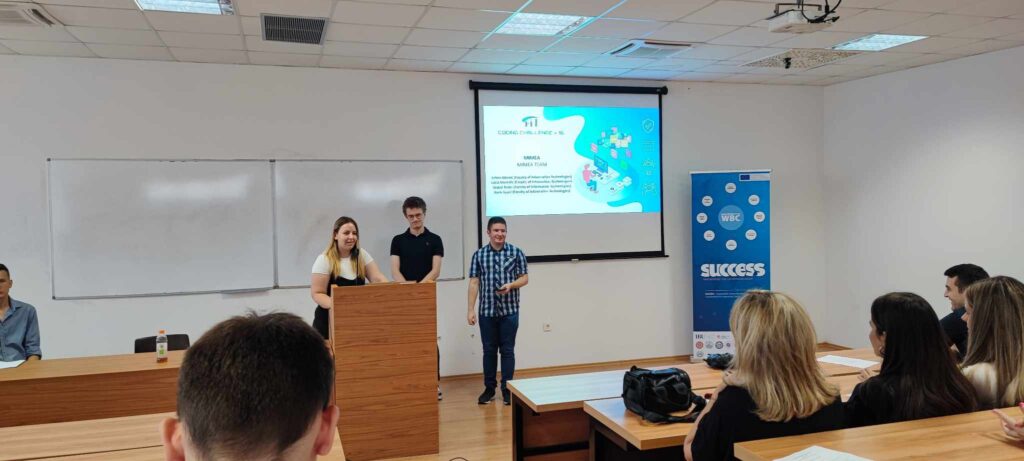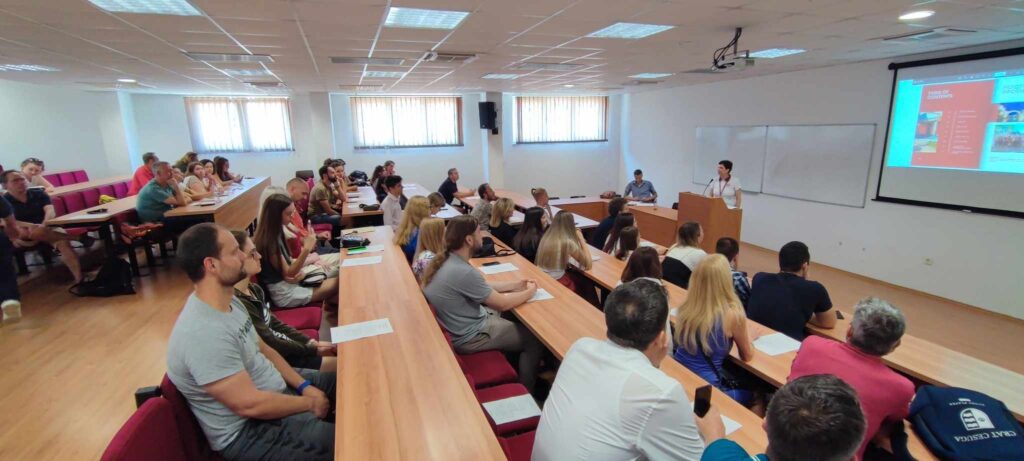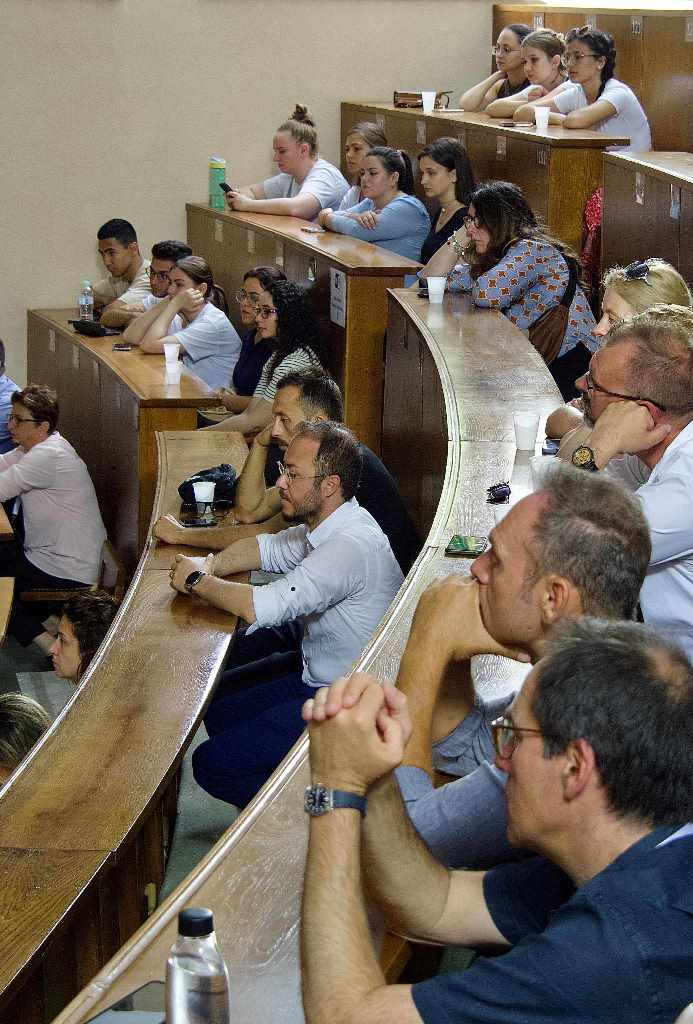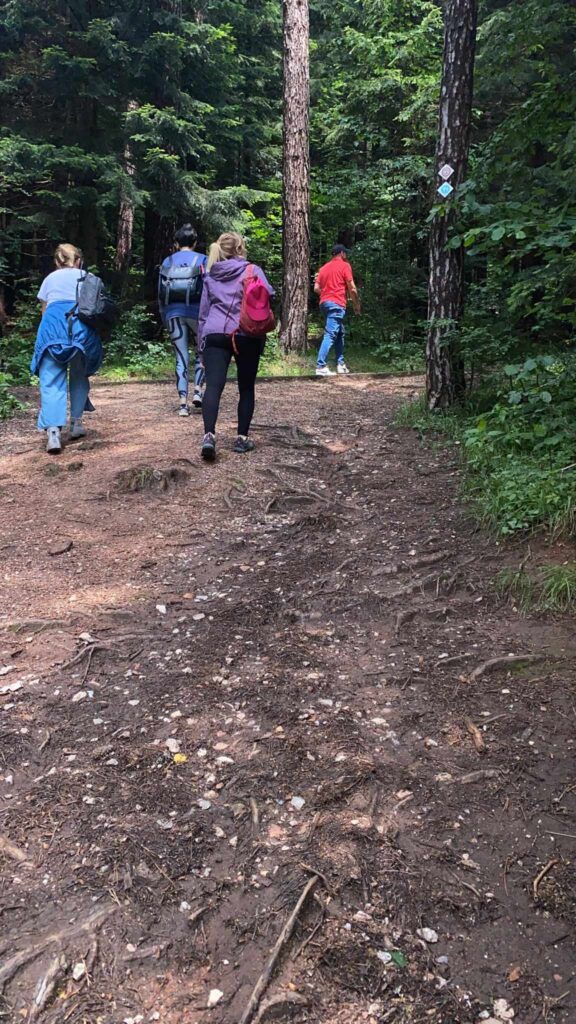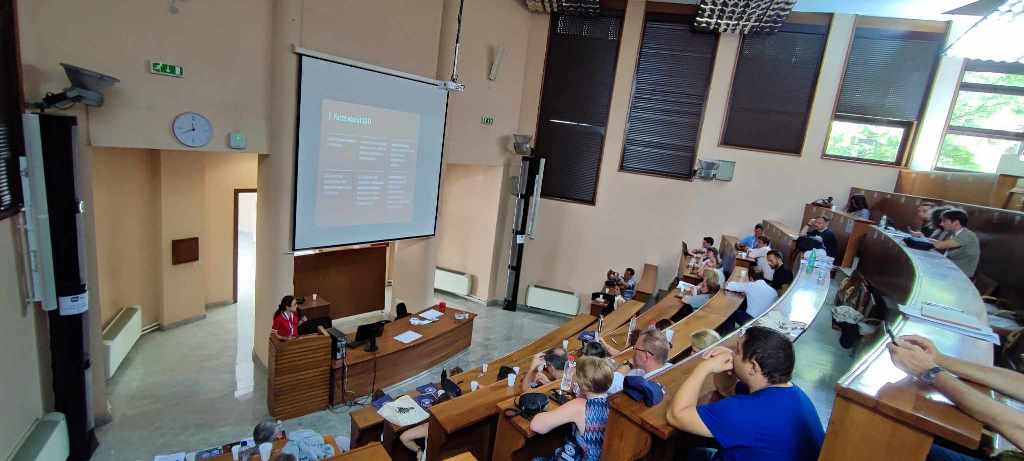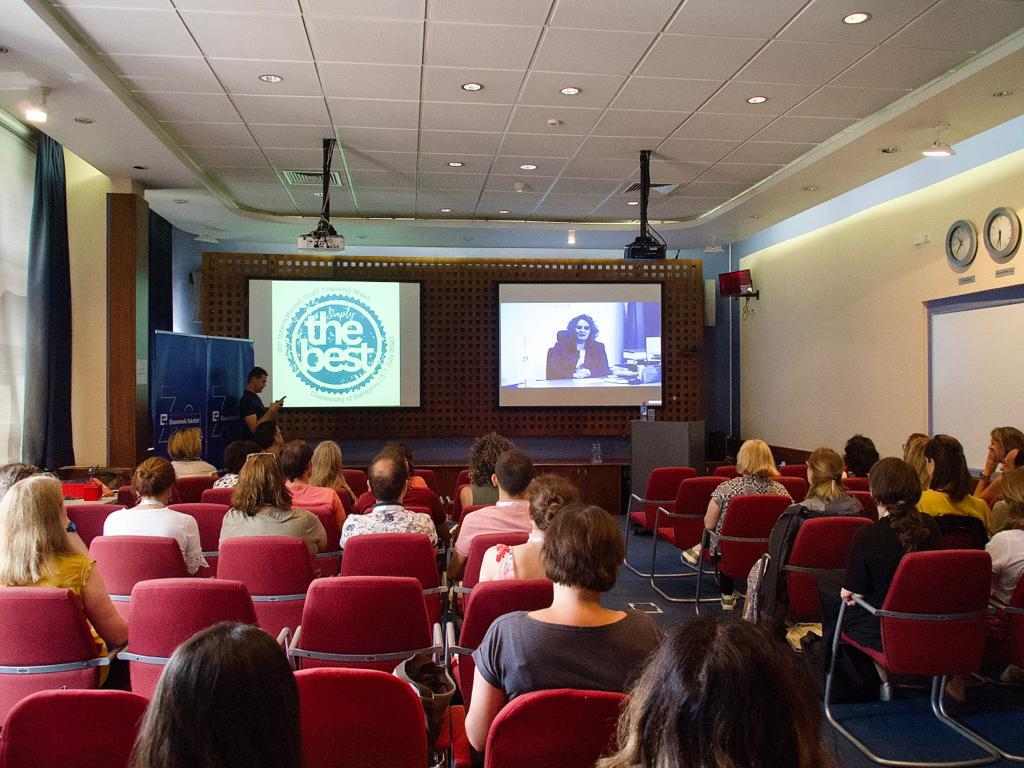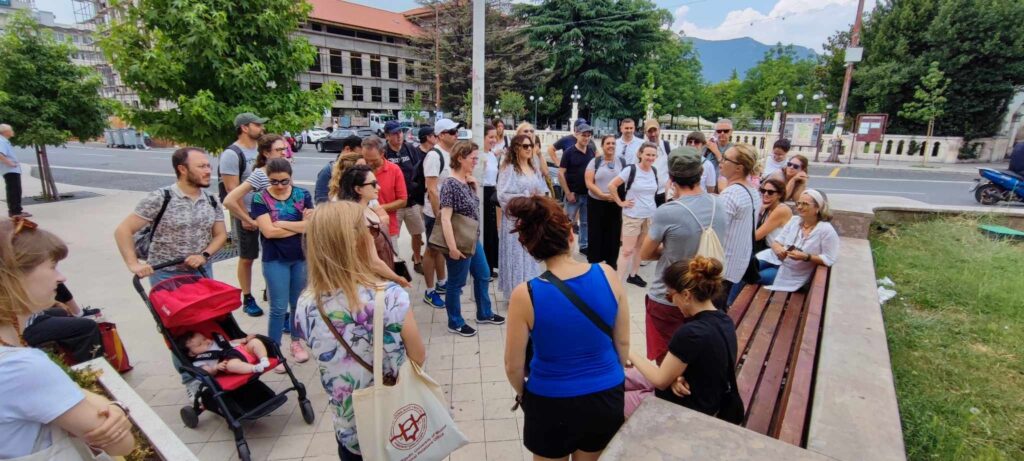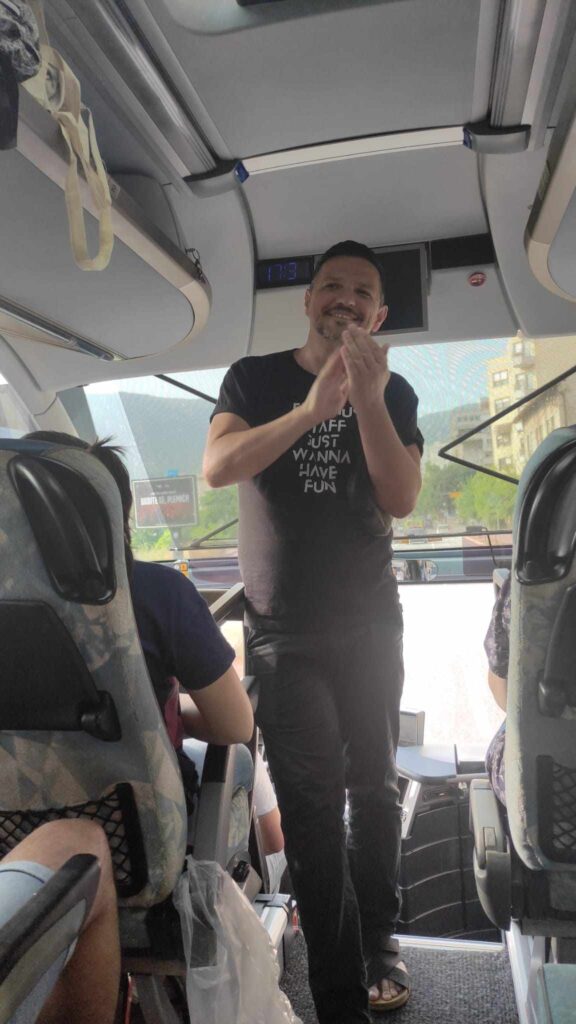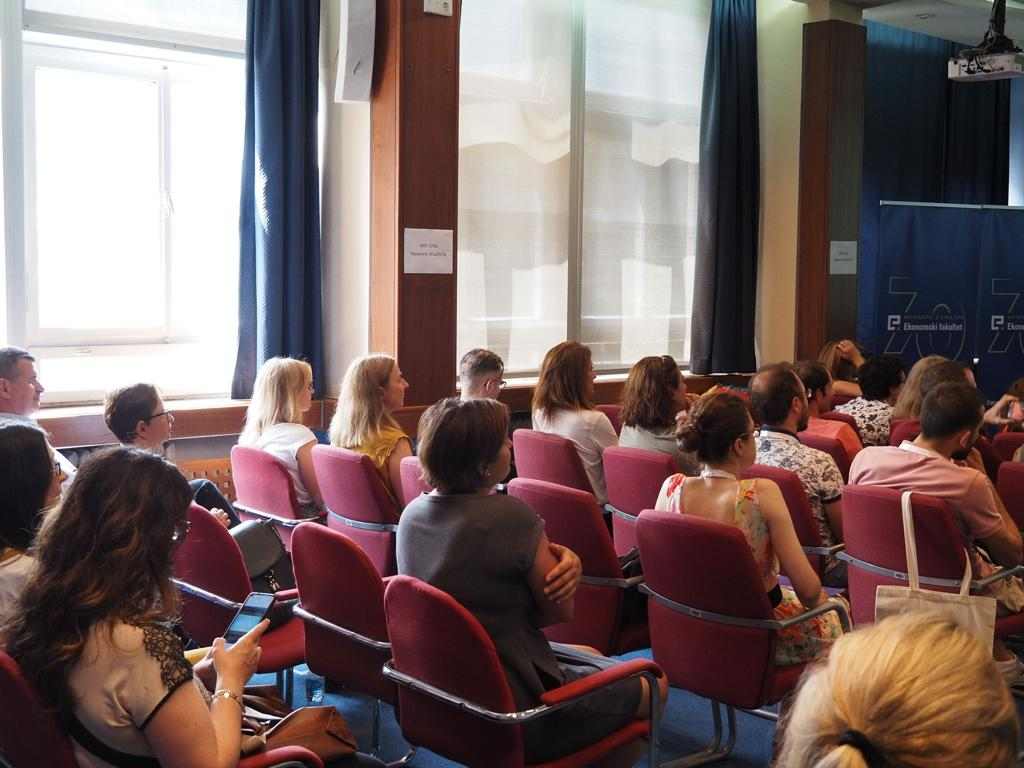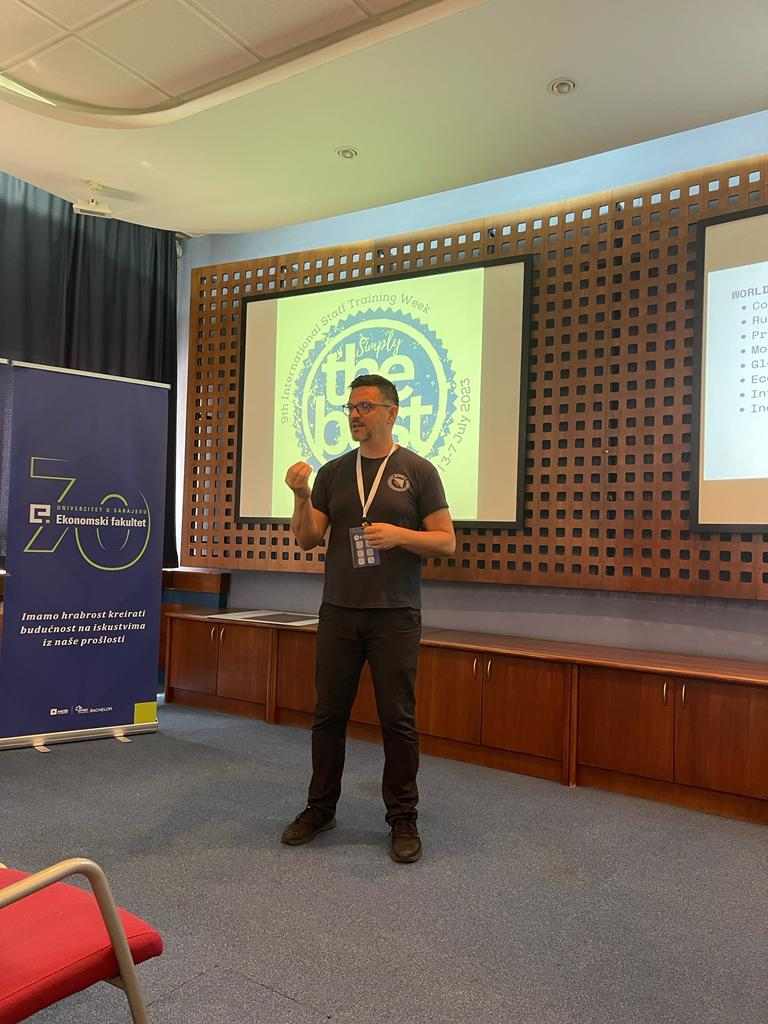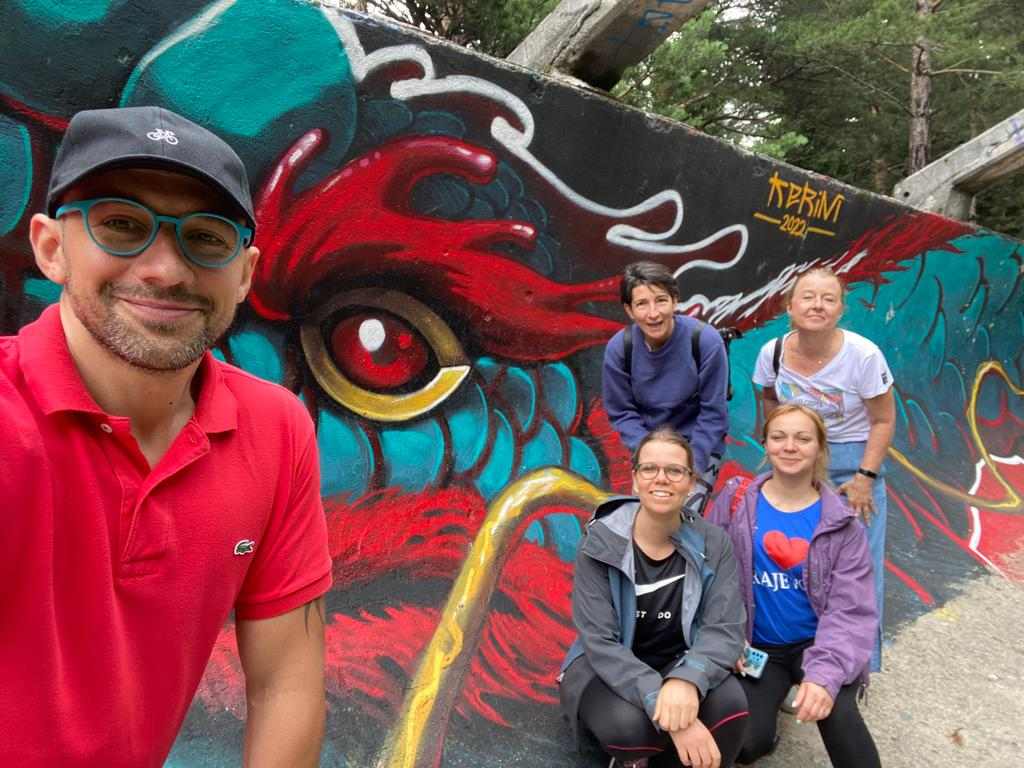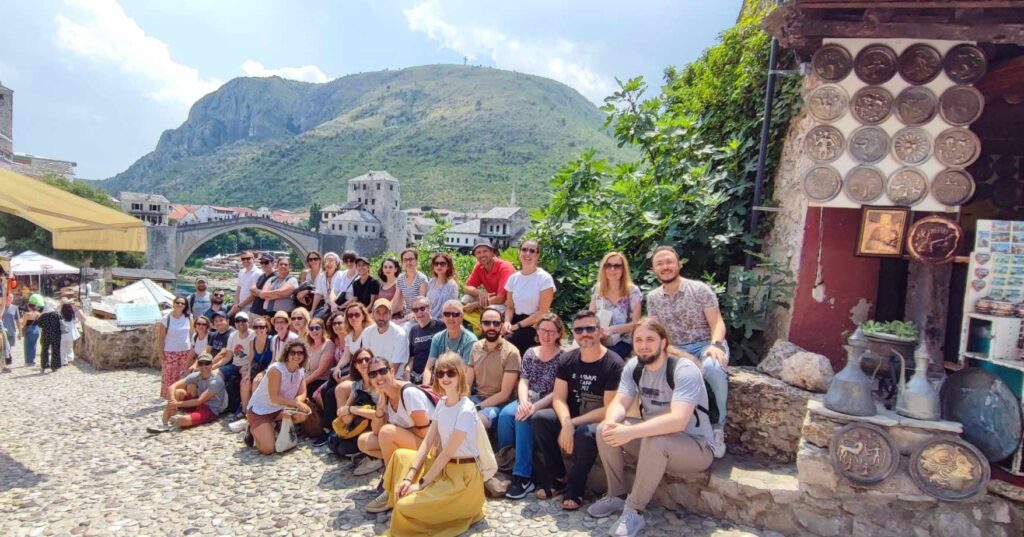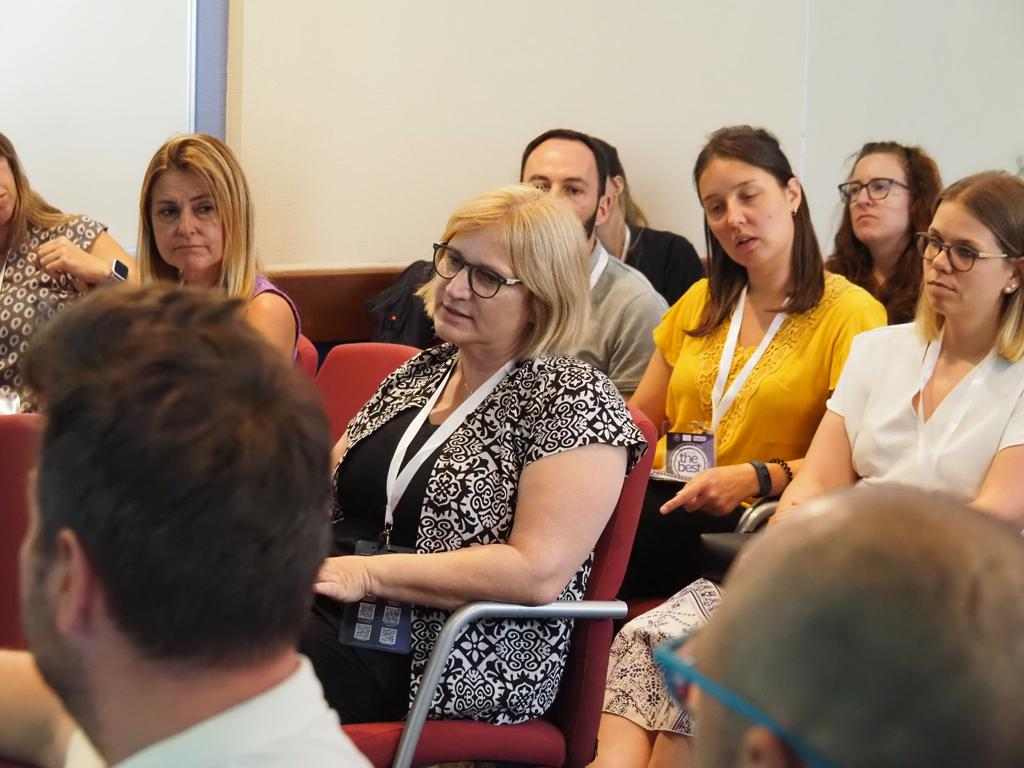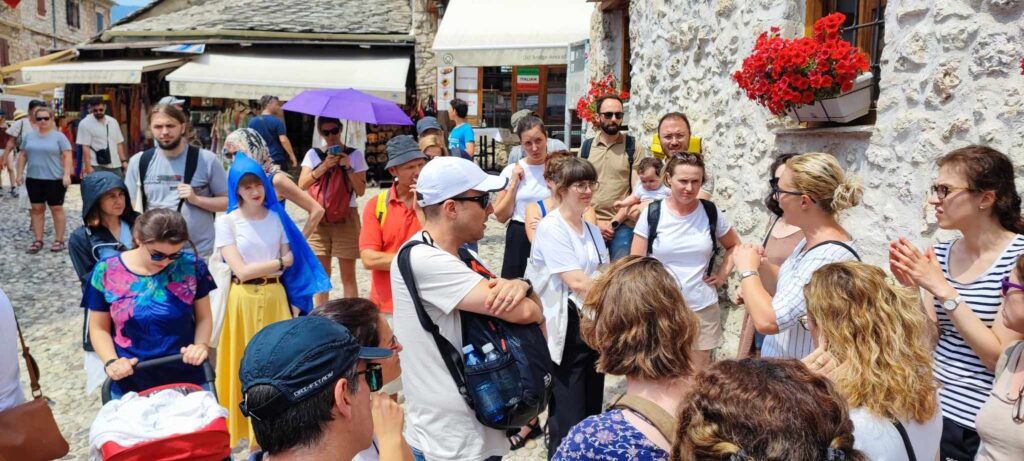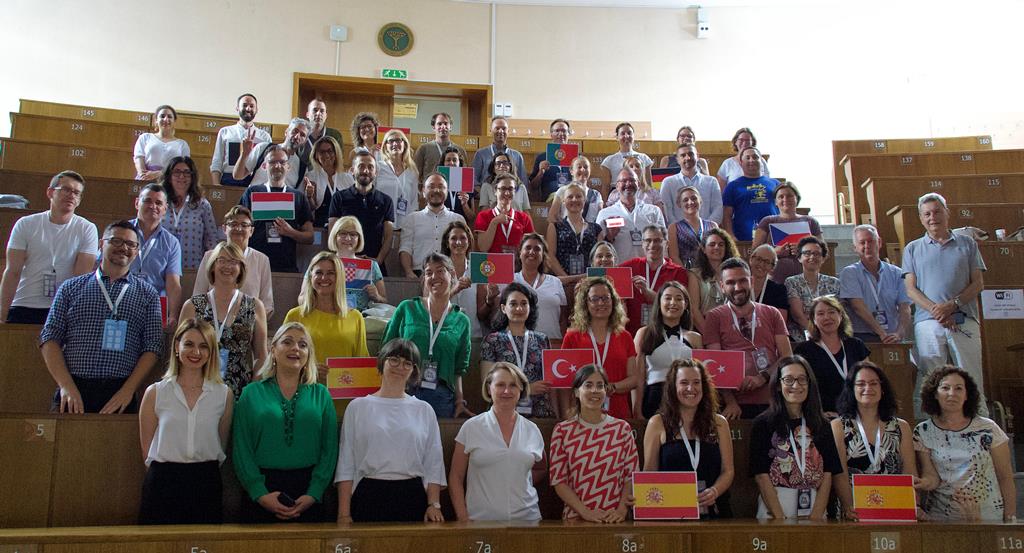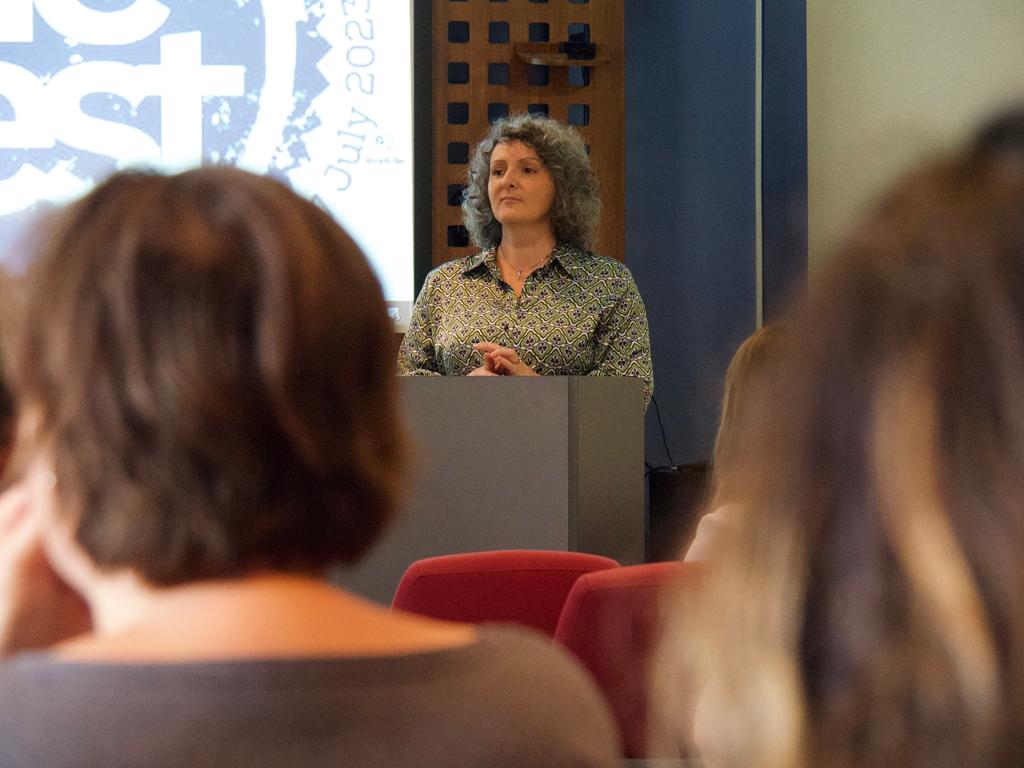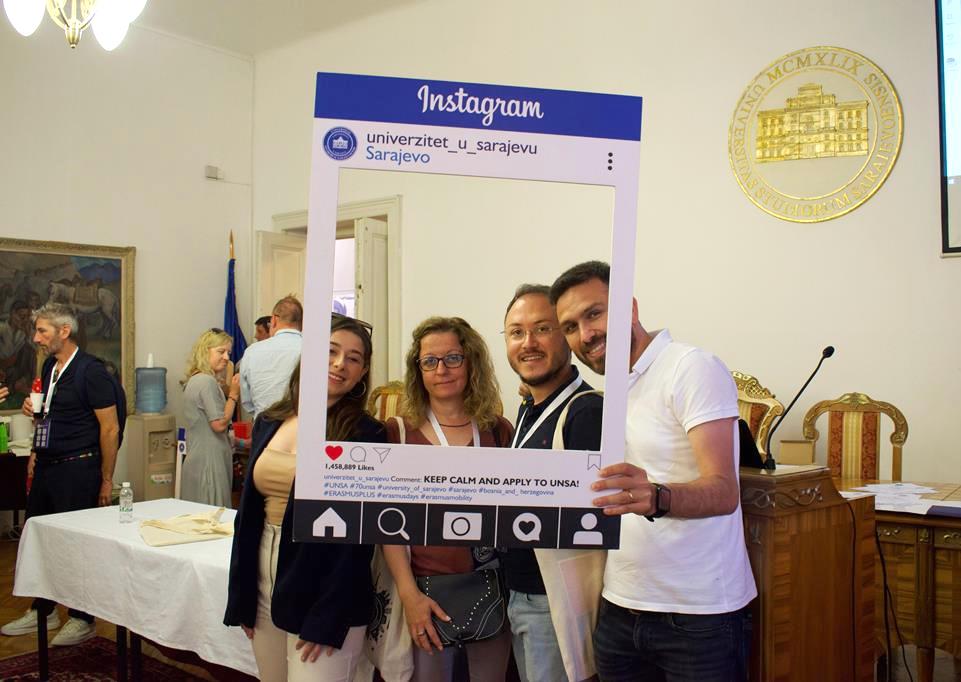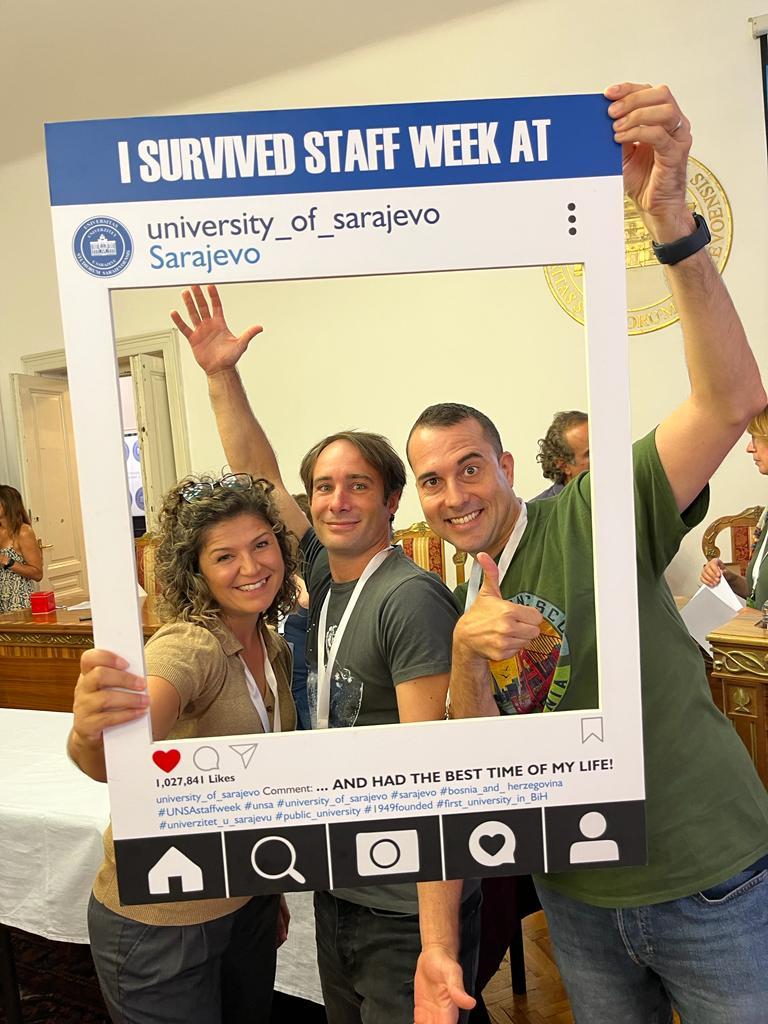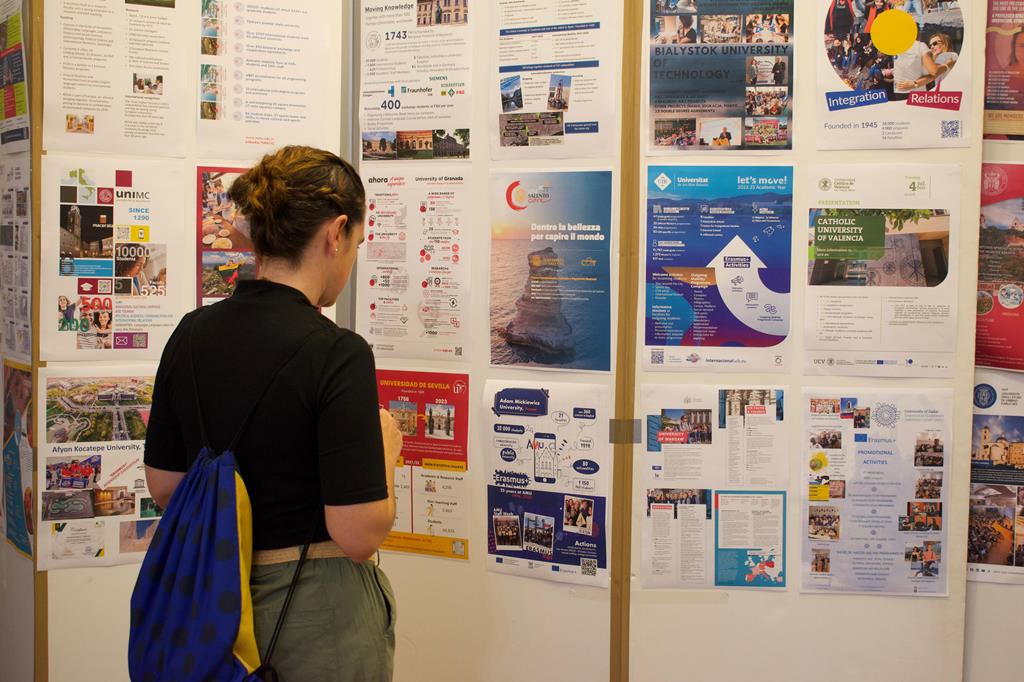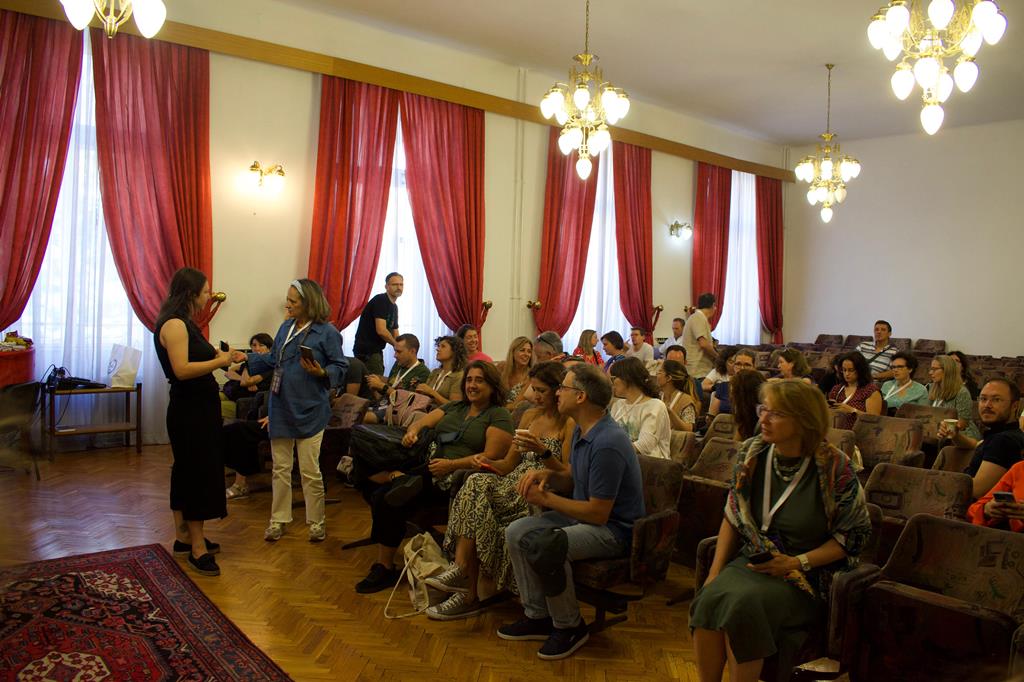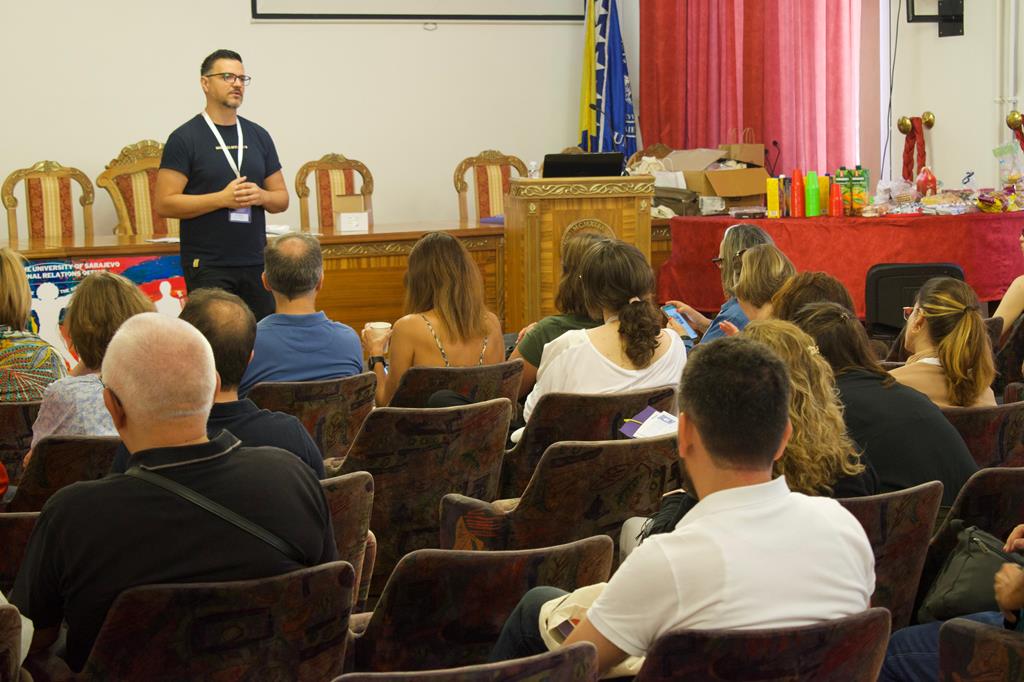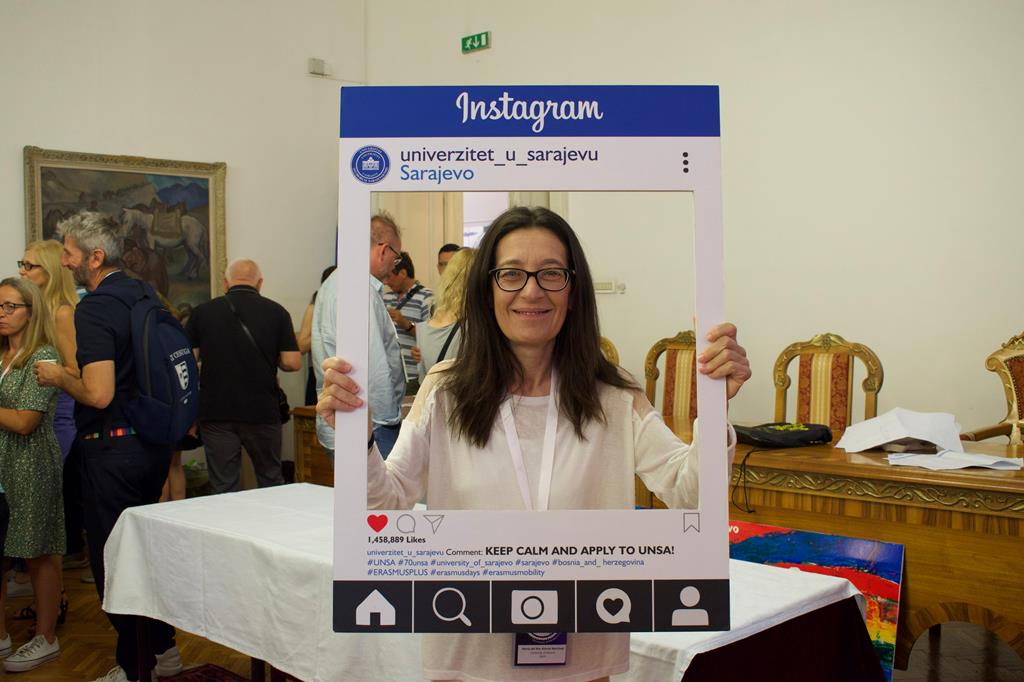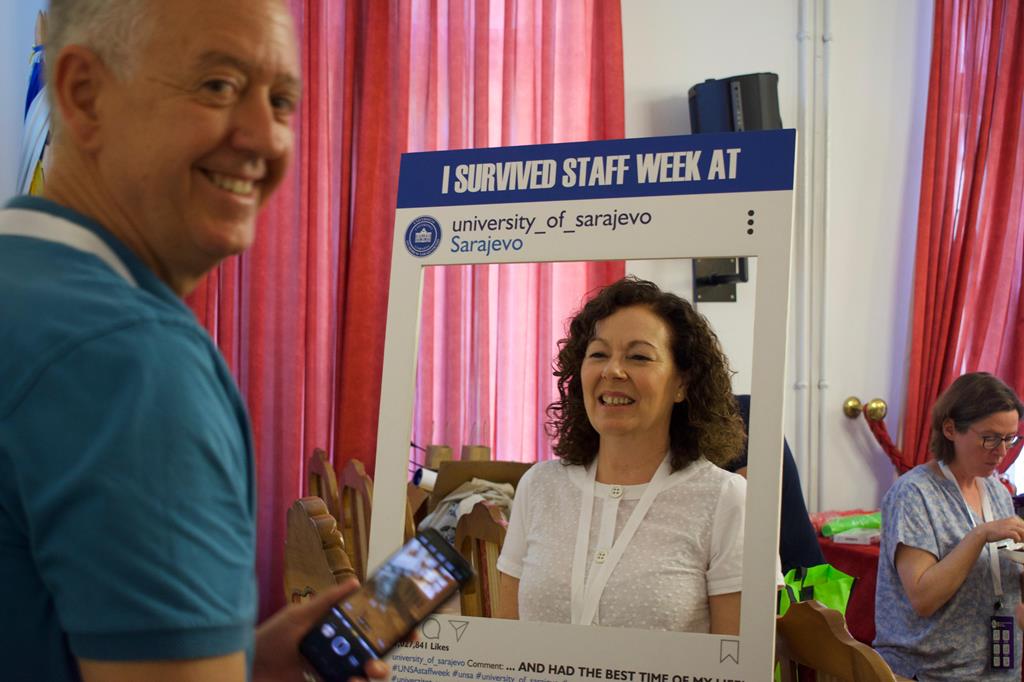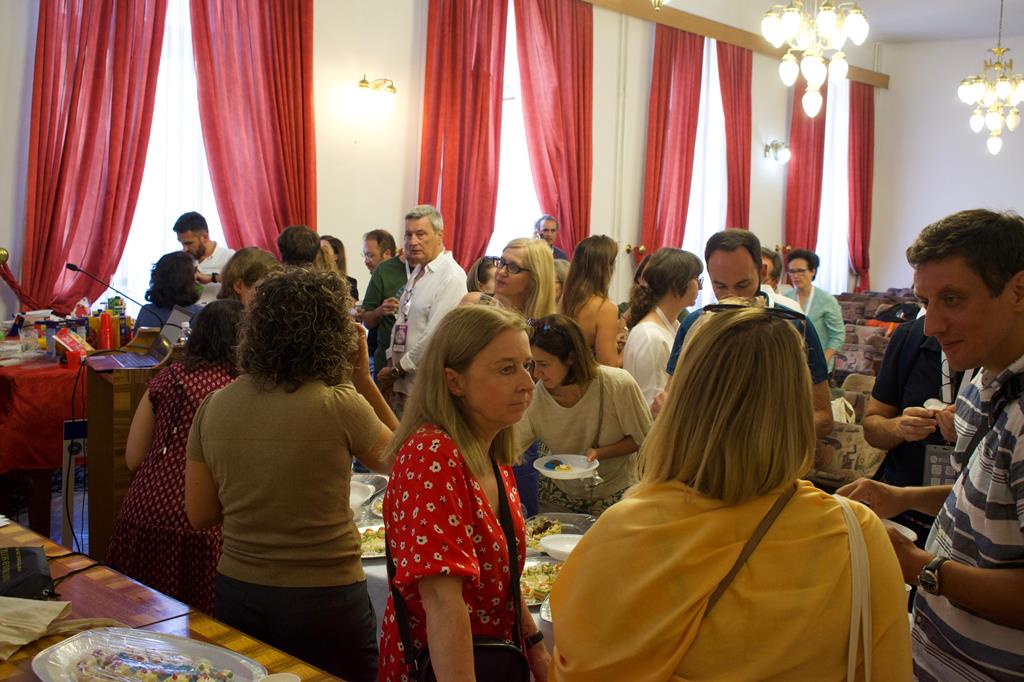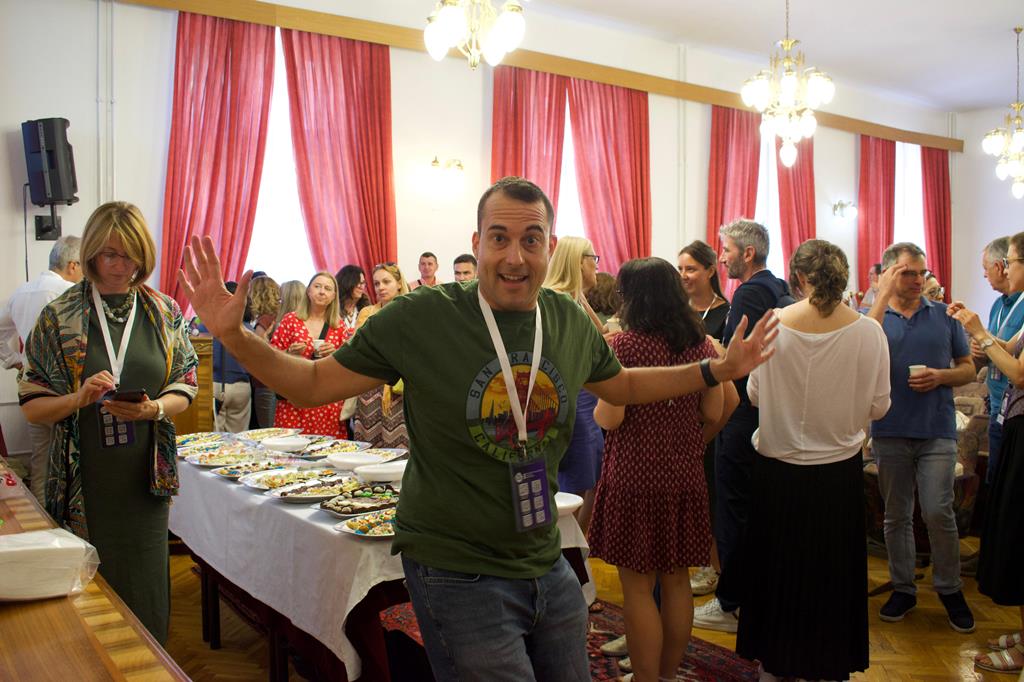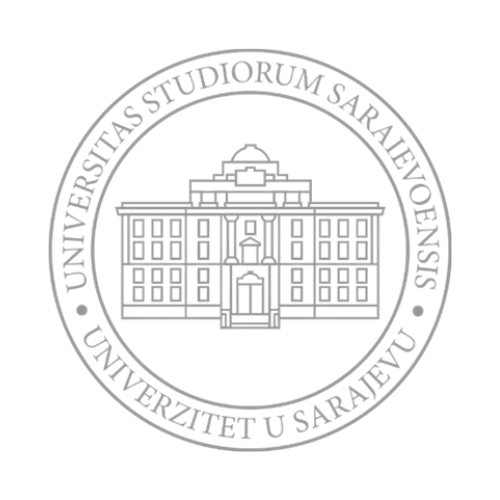3-7 July 2023
In order to promote the Erasmus programme and strengthen the networking of the University of Sarajevo with higher education institutions across Europe, the International Relations Office of the University of Sarajevo organised the Ninth International Staff Training Week for foreign teaching and non-teaching staff, held from 3 to 7 July 2023.
On this occasion, the University of Sarajevo hosted 70 participants representing 39 higher education institutions from 13 countries — Belgium, Croatia, the Czech Republic, Germany, Hungary, Italy, Liechtenstein, Lithuania, Poland, Portugal, Romania, Spain, and Turkey.
Following the example of many European universities, the University of Sarajevo organised activities aimed at better promoting mobility programmes such as Erasmus+, and at increasing the number of international incoming and outgoing mobilities of students, teaching/research and non-teaching staff, with the goal of fostering professional development, academic advancement, and the acquisition of international experience.
The topics of this year’s Staff Week focused on the problems and challenges that Erasmus coordinators face during the implementation of international mobilities. In this way, a common platform and space were created for exchanging opinions and sharing best practices in overcoming obstacles in international incoming and outgoing mobility.
On Monday, 3 July 2023, the Ninth International Staff Training Week was opened by Prof. Dr. Enita Nakaš, Vice-Rector for International Relations, followed by a presentation on the work of the International Relations Office and the University of Sarajevo, with a particular focus on internationalisation, delivered by Mr. Adnan Rahimić, Senior Expert Associate at the International Relations Office of the University of Sarajevo. The first day was also dedicated to presenting the host country and city – Bosnia and Herzegovina and Sarajevo. A city tour was organised for the participants, showcasing different historical periods (Ottoman, Austro-Hungarian, Yugoslav, and modern), prepared and guided by professors from the Faculty of Architecture of the University of Sarajevo: Prof. Dr. Aida Idrizbegović-Zgonić, Assist. Prof. Dr. Senka Ibrišimbegović, and Assist. Prof. Dr. Lejla Kreševljaković.
Throughout the five-day programme, the International Relations Office of the University of Sarajevo enabled participation in various presentations, seminars, and workshops, as well as networking among partners and the exchange of good practices and experiences. In addition, the event served as an excellent opportunity to promote Sarajevo and Bosnia and Herzegovina and to present the University of Sarajevo as a serious and potential partner for many international projects.
The second day of the Ninth International Staff Week was dedicated to the presentation of our guests — international partners — through innovative presentations about best practices, experiences, and projects related to the internationalisation of their institutions. The host of the second day was the Faculty of Medicine of the University of Sarajevo. The meeting was opened by Prof. Dr. Amina Valjevac, Dean of the Faculty of Medicine, and Ms. Edina Kovačević, Coordinator for International Cooperation, who presented the history and work of the Faculty. After the presentation, participants visited the laboratories of the Faculty of Medicine, where the Anatomy Museum attracted the most attention. The guests had the opportunity to learn about various parts of the human body, possible diseases, as well as the Faculty’s genetic research and scientific achievements. Following the tour of laboratories and museums, representatives of all 39 higher education institutions took the opportunity to give short (three-minute) interactive presentations or videos introducing their institution, city, and country, educational offer, Erasmus+ statistics, and unique aspects that could attract students and staff to spend one or two semesters at their institution for academic study or training.
This day also provided an opportunity for teaching/research, artistic, and administrative staff of the University of Sarajevo to connect with colleagues from international institutions and to explore possibilities for future collaborations through projects and international mobilities.
The third day of the Ninth Staff Week took place at the School of Economics and Business of the University of Sarajevo. After the welcome address by Prof. Dr. Jasmina Selimović, Dean of the Faculty, and a presentation on the Faculty’s achievements by Assist. Prof. Dr. Hatidža Jahić, a session titled “Erasmus Gone Wrong” was opened. This session, presented by Mr. Adnan Rahimić, Senior Expert Associate for International Relations, focused on the challenges and problems faced by Erasmus coordinators during the implementation of the Erasmus programme.
Based on a survey conducted by the International Relations Office of UNSA among 100 institutions across Europe, several of the most common challenges were identified, including: the (non-)publication of calls and transparency of selection processes; differences in nomination and administrative procedures; difficulties with implementing “Erasmus Without Paper”; visa and accommodation issues for students; language barriers; drafting learning agreements; intercultural challenges and cultural shocks students face upon arrival in a new country; differing legal interpretations (EU vs. non-EU); tuition fees and inflation; (non-)recognition of achieved results for students and staff; the impact of global events on mobility (COVID-19, wars, etc.), and other daily challenges. Participants were invited to comment, share opinions, or recount their experiences related to these issues.
This was an ideal opportunity to exchange experiences and realise that similar challenges are shared across Europe, regardless of whether an institution is located within or outside the EU. Through this process, a network of experts was established, facilitating the exchange of information and best practices that will contribute to the improvement and adaptation of the Erasmus+ programme to global changes — thereby better addressing the academic and professional needs of students and staff, the final beneficiaries of this programme.
On the fourth day of the Staff Week, participants attended a lecture by Dr. Edna Supur, Senior Teaching Assistant at the Faculty of Medicine, University of Sarajevo, titled “Health Aspects of Students’ Mental Well-being.” Dr. Supur emphasised that mental health is a key component of overall student well-being and that addressing students’ mental health needs is essential. The pressures and challenges students face can have a significant impact on their mental well-being. The academic environment is often highly demanding, with expectations for high performance and achievement, which can lead to stress and anxiety affecting mental health. Higher education institutions should therefore work to create a supportive atmosphere that prioritises both academic success and mental well-being. After the presentation, a discussion was opened, allowing participants to share their experiences and practices on mental health support at their home institutions.
At the end of the session, participants received certificates of successful participation and active engagement during the Ninth International Staff Training Week.
On the fifth day, participants had the opportunity to choose between two extracurricular activities.
A group of 38 participants visited Mostar, where they took part in the International Day of the Džemal Bijedić University of Mostar. After the welcome address by Prof. Dr. Rijad Novaković, Vice-Rector for International Cooperation, and a presentation by Ms. Mirsada Behram, Head of the International Cooperation Office, guests were introduced to the experiences of students who had participated in Erasmus mobilities, as well as student projects in economics and information technology (such as the marketing campaign “I Don’t Want to Be Just a Number on the Bureau” and the success of the Mimea team, finalists in the 2023 Imagine Cup World Finals for creating a digital panel for people diagnosed with dementia). After an engaging International Day, participants enjoyed a guided walking tour of the city, learning about the cultural and historical heritage of Mostar and Herzegovina.
The second group of participants chose the Stay Active and Refreshed tour. Although originally designed as a summer escape from the heat, the tour took place despite the cloudy weather and included a cable car ride, a walk on Mount Trebević, a visit to the Olympic bobsleigh track, and a forest and mountain trail hike. Surrounded by fresh mountain air just 11 minutes from the city centre, the group shared positive experiences and enjoyed informal networking in a relaxing natural environment.
These activities concluded the Ninth International Staff Training Week, which, according to participants’ feedback, once again proved successful in presenting the University of Sarajevo, offering a well-designed five-day programme with carefully chosen topics, showcasing the country and its culture, and fostering connections and partnerships that will lead to future projects and collaborations.

